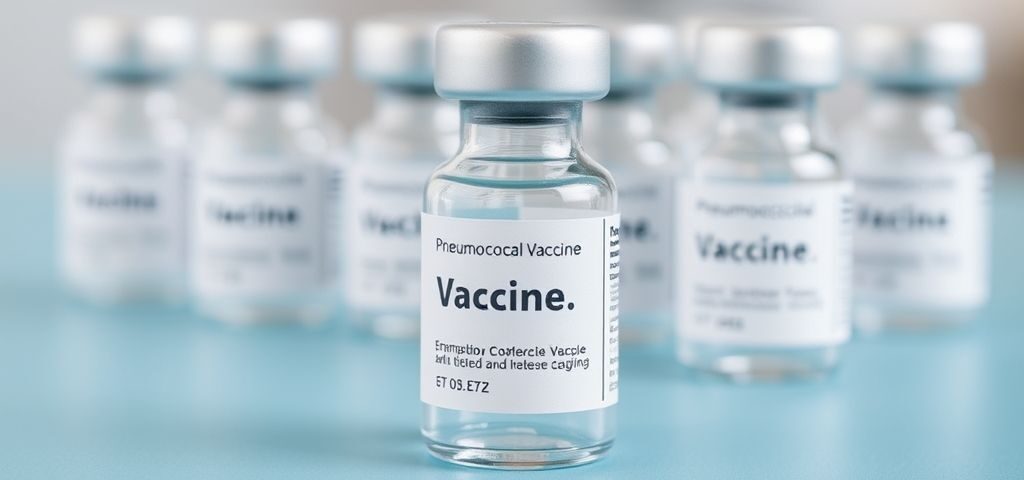Ever wondered how often you need the pneumococcal vaccine? You’re not alone. With all the vaccine types and age-specific guidelines, it’s easy to get confused. But if you or your loved one is at risk of pneumonia, knowing your pneumococcal vaccination schedule can be a literal lifesaver.
This complete guide breaks it down clearly, so you understand which vaccine you need, when to get it, and how often. Whether you’re a parent, a caregiver, or someone 65+ navigating adult vaccinations, this post has got your back.
What Is the Pneumococcal Vaccine?
The pneumococcal vaccine protects against infections caused by the Streptococcus pneumoniae bacteria, which can lead to:
Pneumonia
Meningitis
Blood infections (sepsis)
Sinus and ear infections
These infections can be severe and even deadly, especially for the very young, older adults, or those with weak immune systems.
Why Pneumococcal Vaccination Matters
Each year, thousands of hospitalizations and deaths occur due to pneumococcal diseases. Vaccination can drastically reduce your risk of serious complications, especially in:
Children under 2
Adults over 65
People with chronic illnesses like diabetes, heart disease, and asthma
Smokers and alcoholics
Immunocompromised individuals
Benefits of Getting Vaccinated
Reduces the risk of severe pneumonia and hospital stays
Protects against antibiotic-resistant infections
Helps prevent outbreaks in community settings (nursing homes, schools)
Types of Pneumococcal Vaccines
There are two major categories of pneumococcal vaccines: conjugate vaccines and polysaccharide vaccines.
1. PCV13 (Prevnar 13)
Protects against 13 types of pneumococcal bacteria. Mostly used for children, but also for some adults with high risk.
2. PCV15 (Vaxneuvance)
Protects against 15 strains. Approved for adults and gradually replacing PCV13 in some places.
3. PCV20 (Prevnar 20)
Covers 20 strains of pneumococcal bacteria. Becoming a common single-dose option for adults.
4. PPSV23 (Pneumovax 23)
Protects against 23 types. Recommended for adults 65+ and high-risk younger individuals.
How Often Should You Get the Pneumococcal Vaccine?
Here’s the short answer:
Most adults only need 1 or 2 doses in their lifetime.
Children follow a multi-dose schedule.
People with chronic conditions may require a booster.
But the exact timing depends on your age and health status. Let’s go deeper.
Pneumococcal Vaccine Schedule by Age
Infants and Young Children (Under 5 Years)
Children are most vulnerable to pneumococcal infections early in life.
CDC Recommended PCV13 or PCV15 Schedule:
1st dose at 2 months
2nd dose at 4 months
3rd dose at 6 months
4th (booster) dose at 12–15 months
Most healthy children don’t need PPSV23.
Children with Health Conditions (2–18 Years)
If your child has:
Sickle cell disease
HIV
Cochlear implants
Cancer or chronic kidney disease
Then they may also get PPSV23 at least 8 weeks after completing their PCV series.
Adults Aged 19–64 With Health Conditions
If you have:
Asthma, COPD, or smoking history
Heart, lung, or liver disease
Diabetes
Immunocompromised status
You’ll typically receive:
PCV20 as a one-time dose, OR
PCV15 followed by PPSV23 after 1 year
Adults Aged 65 and Older
Everyone in this age group should be vaccinated, even if they’re healthy.
You have two options:
Option 1: One dose of PCV20 only
Option 2: One dose of PCV15, then PPSV23 one year later
If you’ve already received PPSV23 earlier in life, your doctor will space out any additional doses accordingly.
Pneumococcal Vaccination for People With Medical Conditions
Some medical conditions require repeated vaccination. Examples include:
HIV: Needs both PCV and PPSV vaccines
Chronic kidney disease or dialysis: May need revaccination every 5 years
Cancer survivors: Get vaccinated once the immune system stabilizes
Asplenia (no spleen): Special vaccination timing needed
Always talk to your doctor for a customized plan.

Can You Get Too Many Doses?
Yes, over-vaccination can cause more side effects and doesn’t provide extra benefit. That’s why spacing doses correctly is crucial.
Don’t get PCV and PPSV too close together.
Don’t repeat doses unless medically advised.
Keep vaccination records to avoid duplicates.
What Happens If You Miss a Dose?
No worries—you can catch up on missed doses.
If a child missed doses, they don’t need to start over.
Adults can get the next dose based on the time since their last vaccine.
If unsure, your doctor can run a blood test to check for immunity.
How Long Does Protection Last?
PCV13, PCV15, and PCV20 offer long-lasting protection, often lifelong.
PPSV23 may need to be repeated after 5–10 years for high-risk adults.
Do You Need a Booster Dose?
Booster Required If:
You’re under 65 with immune problems
You received PPSV23 before age 65
Your health condition changes significantly
Booster decisions are based on medical history, not just age.
Vaccine Side Effects
Most people tolerate pneumococcal vaccines well.
Common Side Effects:
Soreness at the injection site
Mild fever
Headache
Fatigue
Rare but Serious Reactions:
Allergic reaction
Difficulty breathing
High fever
Call your doctor if symptoms persist or worsen.
Pneumococcal vs. Flu and COVID Vaccines
You can get the pneumococcal vaccine at the same time as your flu or COVID shot—just in different arms.
Pneumococcal vaccine = Long-term protection
Flu vaccine = Yearly
COVID = Varies with booster updates
Pneumococcal Vaccine Myths and Facts
| Myth | Fact |
| Only old people need it | Young kids and adults with health conditions need it too |
| It causes pneumonia | It prevents pneumonia |
| One type fits all | Different types are used based on your age and risk |
| You only need it once | Some need boosters depending on age and health |
Tips for Staying on Track With Vaccinations
Use a health app or calendar reminder
Ask your doctor during annual checkups
Check local health departments for free vaccine days
Discuss all your vaccines during your yearly physical

Conclusion
Understanding how often to get the pneumococcal vaccine is key to protecting yourself and your loved ones. Whether you’re caring for a newborn, managing a chronic illness, or entering your golden years, there’s a vaccine schedule that fits your needs.
Talk to your healthcare provider, know your risk level, and stay informed about updates in vaccine guidelines. A simple shot can prevent life-threatening illnesses—and that’s worth staying on top of.
FAQs
Q1: Do adults need the pneumococcal vaccine more than once?
Most healthy adults over 65 need just one dose of PCV20 or a combination of PCV15 and PPSV23. Those with high-risk conditions may need repeat doses every 5 years.
Q2: What’s the difference between PCV13, PCV15, and PCV20?
Each covers a different number of pneumococcal strains. PCV20 covers the most and is increasingly used as a one-dose solution for adults.
Q3: Can the pneumococcal vaccine be given with other vaccines?
Yes, it’s safe to receive it alongside flu, COVID-19, or shingles vaccines—just use different arms for injections.
Q4: Is the vaccine free or covered by insurance?
Most insurance plans, Medicare, and Medicaid cover the vaccine fully. Check with your provider or local health department.
Q5: Who should not get the pneumococcal vaccine?
People with severe allergic reactions to vaccine ingredients or a previous dose should avoid it. Always discuss risks with your healthcare provider.

